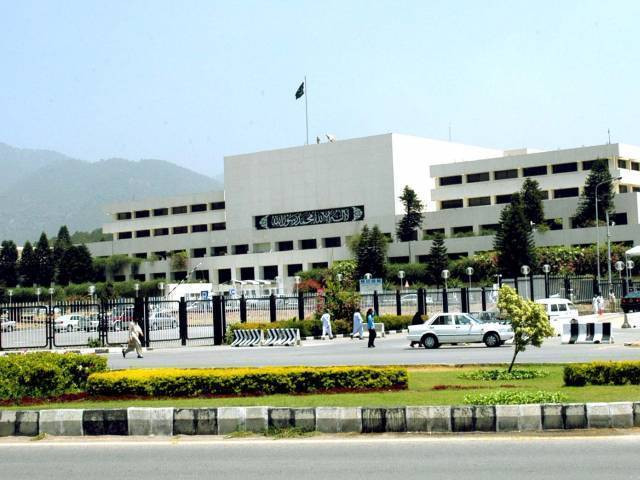Pakistan must navigate carefully
Country needs to align with global powers, forge regional partnerships

After a long stretch of relative calm, global uncertainty is once again rearing its head. Pakistan and India narrowly avoided a prolonged military standoff – one of the most serious escalations in decades. Yet, true peace remains elusive until core issues like Kashmir, terrorism, water and trade are addressed.
On the western front, while China has brokered a rare trilateral political thaw between Pakistan and Afghanistan, the Iran-Israel conflict threatens to entrench itself deeper, potentially engulfing the entire Middle East. Let's not forget, the brutal Russia-Ukraine war continues unabated, costing thousands of lives and reshaping global alliances. History will remember this period as a defining chapter of the 21st century.
The new world order is uncertain; Pakistan must be precise, principled and prepared. In this global flux, Pakistan must strike a delicate balance: align with both global powers – the US and China – while forging regional partnerships with similarly sized nations to gain economic and diplomatic leverage.
Domestically, however, our economic narrative has been disappointing. In just 15 years, Pakistan has suffered five boom-bust cycles, falling repeatedly into balance of payments crisis, currency devaluation, high inflation, IMF bailouts and eroded investor confidence – foreign and domestic alike. These policy failures are not just unfortunate, they're criminally negligent.
A Charter of Economic Governance must be enshrined with binding commitments from all political parties, teaching economic prudence as a prerequisite to policymaking.
Economic mismanagement is not bad luck; it's bad leadership, which should not be repeated. This year's federal budget, therefore, offers a glimmer of hope. Pakistan appears to have realised – or is being forced to realise – that sustainable progress demands a higher tax-to-GDP ratio. Unfortunately, the burden still falls unfairly on the salaried, middle and lower classes, while powerful sectors like real estate, agriculture and services remain protected.
True reform demands that every sector contributes to national development and defence. The NFC Award too needs a rethink – allocations should increasingly be linked to provincial performance, not just population. Metrics such as export value addition, IT services, investor facilitation and productivity gains should determine incentives. Provinces must be held accountable for power distribution companies' (DISCOs) losses, population control efforts and public service delivery, particularly in healthcare and education.
Pakistan needs a performance-based federation; not just a population-based one. On the fiscal front, the budget's continued commitment to primary surplus is commendable – this marks the third consecutive year. It signals a much-needed course correction that should persist for the next decade.
Pakistan must now actively deleverage its debt profile to free up space for essential investments in education, healthcare and social protection. More importantly, this shift will help restore our national dignity – we must no longer be a country that survives by begging or borrowing.
The onus now falls on provinces to enforce tax equity. Agriculture, real estate, services, retail and informal sectors must be brought into the tax net. Retailers, smugglers and evaders must be documented, not harassed. Technology can enable this transition without human interaction, ensuring fairness and eliminating corruption.
Meanwhile, focus must urgently shift towards increasing value-added exports, fixing the broken energy chain and privatising failing or underperforming state-owned enterprises like Pakistan International Airlines (PIA), Hyderabad Electric Supply Company (Hesco), Sukkur Electric Power Company (Sepco) and Peshawar Electric Supply Company (Pesco). Even profitable DISCOs need privatisation to eliminate inefficiency and political interference. We cannot rely forever on remittances – a stagnation trap is inevitable unless we pivot towards sustainable productivity.
Surviving on remittances is not strategy; it's surrender. The stakes are too high for business-as-usual. Pakistan must fix its economic foundations – now. This requires ironclad governance, tax equity and a 10-year economic vision rooted in productivity, exports and resilience.
The Special Investment Facilitation Council (SIFC)-backed civil-military leadership has a rare window of alignment and mandate. It must use this moment to institutionalise reform, not short-term firefighting. If we are to survive the turbulence ahead – geopolitical or economic – we need more than hope. We need a war chest, a policy compass and, above all, the courage to lead. Let this be the decade we finally get it right.
The writer is an independent economic analyst






















COMMENTS
Comments are moderated and generally will be posted if they are on-topic and not abusive.
For more information, please see our Comments FAQ